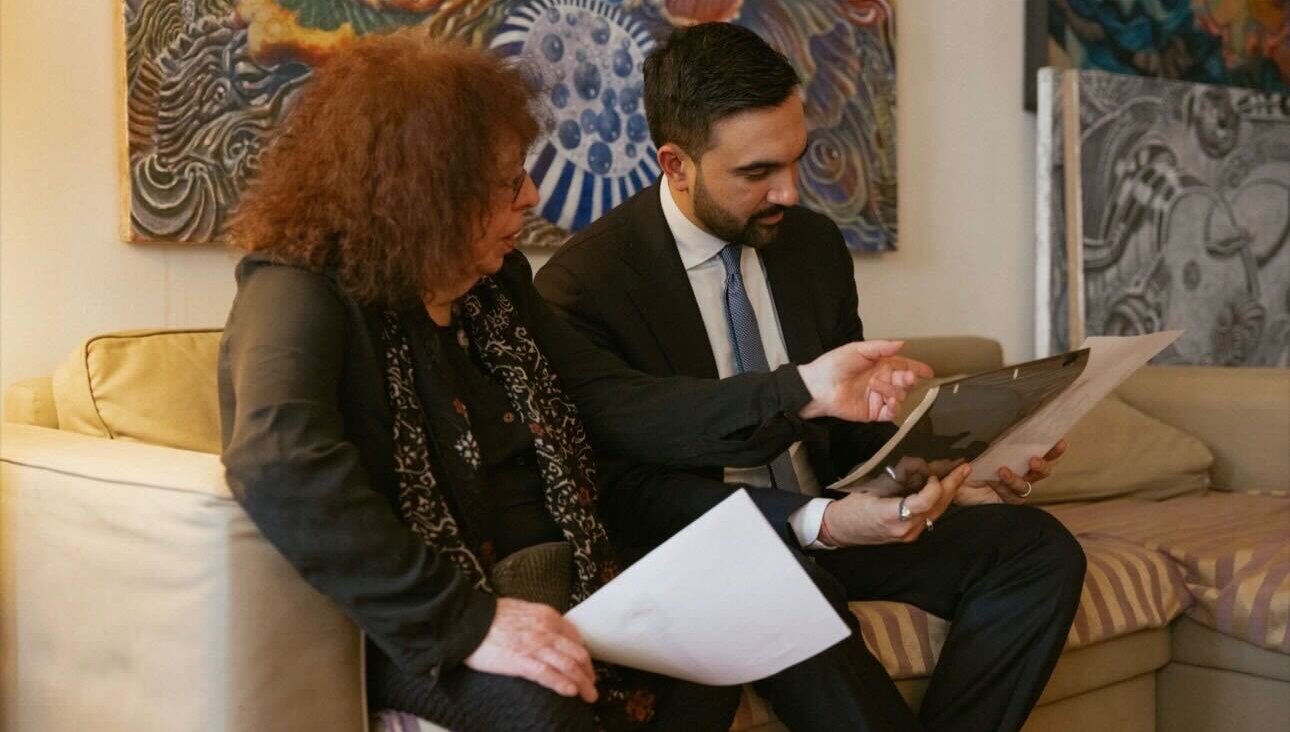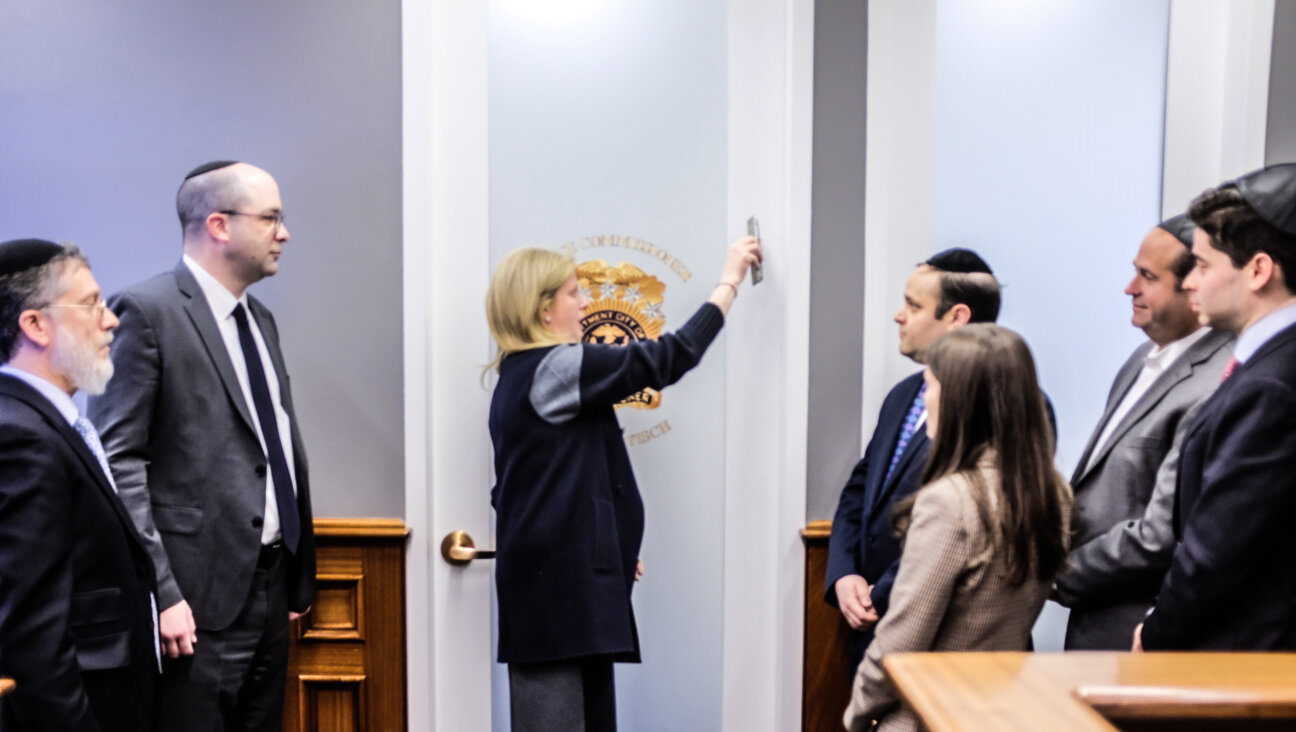Growing Jewish Values At Abundance Farm

Image by Courtesy Jacob Fine
The posts on The New Spirituality blog are responses to Rabbi Sid Schwarz’s lead essay in his book, Jewish Megatrends: Charting the Course of the American Jewish Future (Jewish Lights). In that essay, which was posted on this site on May 5, 2016, Schwarz argues that any organization that hopes to speak to the next generation of American Jews needs to advance one or more of four key value propositions. They are: Chochma, engaging with the wisdom and practice of our inherited Jewish heritage; Kedusha, helping people live lives of sacred purpose; Tzedek, inspiring people to work for a more just and peaceful world; and Kehillah, creating intentional, covenantal communities that bind people to one another and to a shared mission.
My work with Abundance Farm is aligned with each of the four propositions. We understand our mission as having three, overlapping dimensions—1) to support local food security and to promote food justice 2) to provide inspiring, farm-based educational experiences and 3) to build strong community across a diversity of age, faith and background.
The value proposition for Abundance Farm that undergirds this 3-pronged mission, asserts that our work is needed in order to help Jewish life and tradition remain relevant for our people and, just as importantly, because Judaism mandates us to be actively engaged in environmental, social justice and bridge-building work when we identify needs within our local community and the world at large. In other words, our work can be seen as a tool, or strategy, for making Judaism increasingly relevant and attractive to larger numbers of people, as well as an authentic expression of Jewish values in action.
Through our various and diverse programs, we seek to advance each of four propositions Sid identifies. Since the ways in which our work are aligned with the social justice/tzedek proposition are more apparent, let me briefly share a few examples of how our work aligns with the first and last of the four propositions.
Wisdom/Chochmah: From the outset, we have been quite intentional in trying to establish Abundance Farm as outward facing. Abundance Farm is a collaboration between a Conservative synagogue, a Jewish Day School and our city’s largest food pantry; the three organizations share a physical campus where the 1-acre Farm and outdoor classroom is also situated. If one of the common ailments of Jewish communal institutions is that they tend to be insular and parochial in their perspective, we have sought to create a project that through its very DNA, as well as guided by its objectives, is guaranteed to be expansive, inclusive and unconventionally unifying. Even though only a small parking lot separates the food pantry from the synagogue and the day school, before the Farm existed there was little connection between the organizations or their members/clients. Through the work of the Farm, people are meeting one another and finding common ground. Along these lines, quite strikingly, the Farm is also serving to establish the synagogue and the day school more actively as a presence in our neighborhood and community. If until now, these two organizations operated largely as insular islands within our neighborhood and community where only a very small number of members or students ever ventured inside to take a peek, we now have a very visible, public space where the Jewish community interfaces with the outside world. Of the 600 people at our last fall’s Sukkot Harvest Hakhel Festival, roughly ⅓ had never been on our campus before. There are many beautiful stories which illustrate the consequences of having this new outward face. After only our first two seasons, our proposition that the Farm would attract new faces to our Jewish institutions has clearly proven correct. People who rarely, or never, attend other Jewish communal activities are coming out to Farm events and programs. In a few cases, we know that the Farm has already served as a gateway, or contributor, to synagogue or day school affiliation. It remains to be seen how significantly the Farm functions to make our existing institutions more vibrant and sustainable.
Sacred Purpose/Kedushah: We are seeking to utilize the Farm as a physical space where Jewish spirituality can come alive in new and different ways for people in our community and the broader public. Much of this work involves our efforts to re-contextualize the Jewish calendar, Jewish time and, to some extent, Jewish theology, through direct, unmediated relationships with land, agriculture and natural rhythms. Through land-based Lag B’Omer and Sukkot festivals, outdoor Shabbat, havdalah and holiday services and experiential workshops and classes which bring Torah to life, we are breathing new life into customs, rituals and mitzvot which have been either forgotten or lost meaning for many people. A great example of this effort was the “Harvesting Hope: A Multi-Faith Call to Action” initiative which we organized this past summer/fall. Inspired by the long forgotten biblically ordained Hakhel festival that comes at the end of a Sabbatical Year, we convened a diverse, interfaith group of clergy and lay leaders. Working together, we used the platform of Hakhel as a rallying cry for debt relief, earth stewardship and sustainable rest in each of our communities. Our two months of programs around the community culminated in a multi-faith Hakhel festival with 600 attendees that included an interfaith prayer service on the Farm.

















